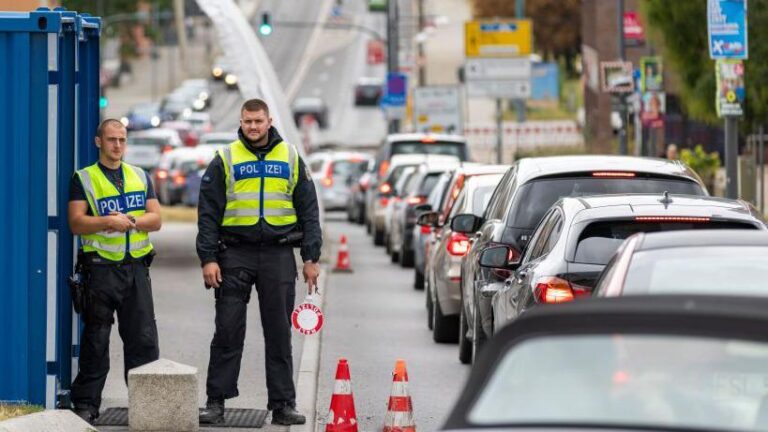Germany and Poland are set to adjust their border security measures as Poland announces plans to extend temporary checks at its frontier with Germany. The move comes amid ongoing concerns over migration flows and regional security, prompting both nations to recalibrate their approach to cross-border controls. This development signals a significant shift in the management of one of Europe’s most heavily trafficked land borders, with implications for bilateral relations and the broader European Union’s Schengen area policies.
Poland Plans to Prolong Border Checks Amid Rising Security Concerns
Polish authorities have announced their intention to maintain border controls for an extended period, citing escalating security challenges in the region. This decision arrives amid increasing concerns over illegal crossings and potential threats stemming from regional instability. Officials emphasize that the enhanced scrutiny at checkpoints aims to safeguard public safety and manage migration flows more effectively.
Key measures being reinforced include:
- Increased patrols along critical border points
- Deployment of advanced surveillance technology
- Collaboration with neighboring countries on intelligence sharing
- Temporary extension of customs regulations
| Border Section | Current Checkpoints | Planned Extensions |
|---|---|---|
| Poland-Germany | 12 | +6 months |
| Poland-Ukraine | 20 | +9 months |
| Poland-Belarus | 15 | +12 months |
Impact of Extended Controls on Germany Poland Cross-Border Trade and Travel
The decision by Polish authorities to prolong border checks with Germany has led to notable disruptions in daily transit and commercial exchange across the frontier. For commuters and tourists, the extended controls mean increased waiting times and a necessity for enhanced travel planning, impacting routine cross-border activities. Truck drivers and logistics companies face delays that ripple through supply chains, escalating transport costs and affecting timely delivery of goods. Local businesses on both sides are bracing for economic consequences as consumer flow diminishes due to the unpredictability associated with border crossing times.
Experts stress that while security remains a priority, the sustained checkpoint controls could strain the traditionally seamless movement within the Schengen Area. Key effects include:
- Logistical bottlenecks: Increased inspection times at border points slow down freight transit.
- Economic impact: Cross-border retail and service sectors experience reduced footfall.
- Community challenges: Daily commuters face added complications impacting work and family routines.
| Category | Before Extension | After Extension |
|---|---|---|
| Average Crossing Time | 15 minutes | 45 minutes |
| Daily Cross-Border Commuters | 20,000 | 15,000 |
| Freight Delays | Minimal | Significant |
Experts Recommend Enhanced Coordination to Minimize Disruptions and Ensure Safety
Authorities and border management experts emphasize the critical need for strengthened collaboration between Polish and German officials to mitigate the impact of extended border checks. Such coordination aims to streamline processes, minimize wait times for travelers, and prevent economic disruptions on both sides. Experts advocate for the implementation of shared technology platforms, joint training sessions, and real-time communication channels to ensure that all involved parties are aligned and responsive to evolving security demands.
In addition to operational synergy, safety remains a paramount concern. Specialists recommend the following measures to maintain seamless and secure border operations:
- Regular information updates to the public and freight operators about potential delays.
- Enhanced resource allocation during peak travel periods to avoid bottlenecks.
- Cross-border emergency protocols to handle incidents swiftly.
| Coordination Aspect | Recommended Action | Expected Benefit |
|---|---|---|
| Communication | 24/7 shared platforms | Faster incident resolution |
| Training | Joint drills | Improved operational readiness |
| Public Information | Real-time updates via apps | Reduced travel frustration |
| Coordination Aspect | Recommended Action | Expected Benefit |
|---|---|---|
| Communication | 24/7 shared platforms | Faster incident resolution |
| Training | Joint drills | Improved operational readiness |
| Public Information |
The ConclusionAs Poland moves to extend border checks with Germany, the latest developments underscore ongoing concerns about migration and security within the region. Both countries continue to navigate the balance between open borders and national safety, reflecting broader dynamics within the European Union. Observers will be watching closely how these measures affect bilateral relations and cross-border cooperation in the coming months. |




